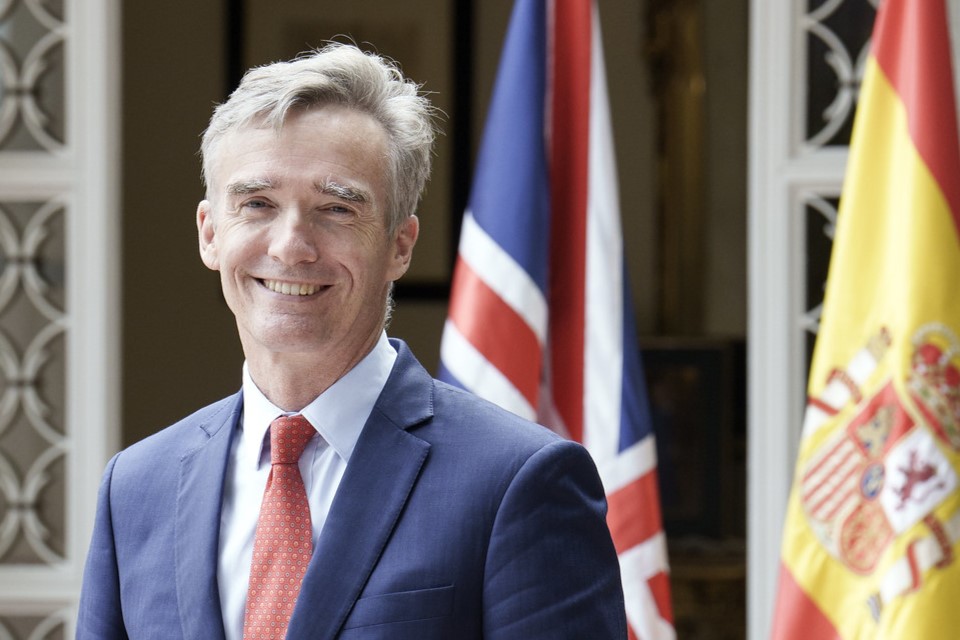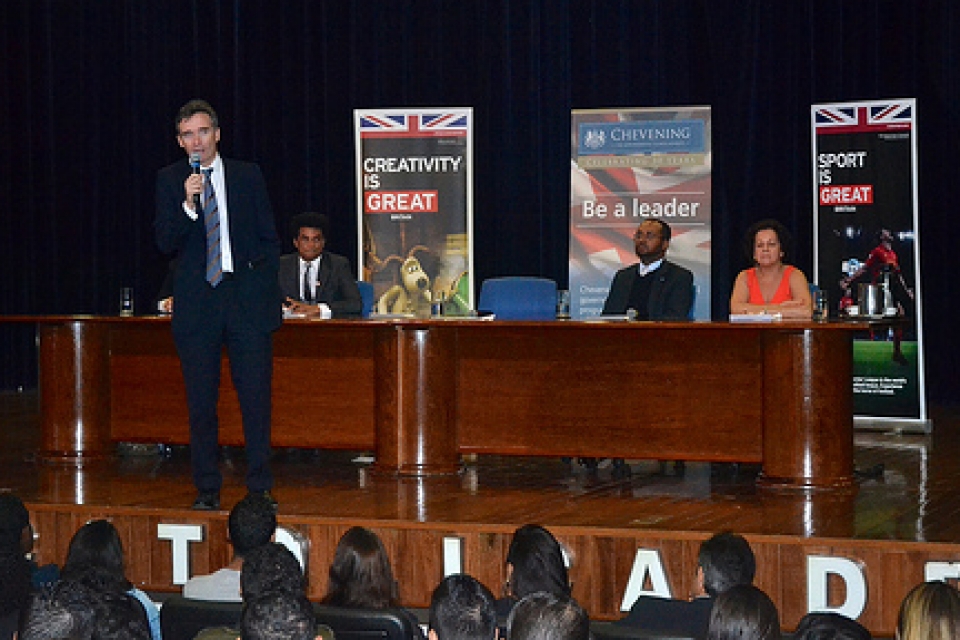Soft Power: Education and Culture in the UK - Brazil relations
British Ambassador Alex Ellis talked about soft power, education and culture to international relations and law students.

Soft Power
- It’s soft. Is it really power? And if it is, does it fall apart if governments try to manipulate it?
- I’m a bit wary. An easy term to throw around; overused last year in the UK after the Olympics.
- Definition of Joe Nye; power to change through attraction rather than coercion. Winners of the 21st century will be those with the best story, not the finest army.
- Attractive as an alternative to hard power. Especially in Iraq context.

British Ambassador Alex Ellis speaks at UCB
UK and Brazil
-
UK is ranked high in soft power (moved from #2 to #1 after 2012 Olympics). Why? Because we have excellent public institutions– British Council, 4/top 10 world Universities and 6/top 20, not forgetting excellent institutions outside SE England eg Dundee, DeMontfort, Museums. And we have great sport. What makes them so good? Open (eg heads of the Bank of England, the V and A are Canadian and German), international outlook (number of foreign students in the UK (over 480,000 or 11% of all international students), UK most attractive place to improve English according to latest Brazilian survey (27% put it top) and London most attractive city for this.
-
Should not forget other institutions. The lesson I took from my Brazilian professors in the UK was that our most powerful national story was about efficient income redistribution eg through NHS, public education including Universities.
-
Brazil moving up rankings [#14] because its story is an attractive one (economic development leading to social transformation and redistribution, all in a multi-ethnic democracy) and so is its brand (the 2014 world cup and 2016 Olympics could help to move further up).
-
Is soft power actually power? In some ways, yes. Brazil wins elections (WTO, FAO, Olympics). A country you don’t vote against. Gets its power internationally in part because of its difference – not the old West, not China. Very much Brazil.
-
Soft power needs a combination of success, attractiveness and accessibility. Brazil’s success is very attractive because of its democracy, reduction in inequality and multiethnicity. Acccesible yes, although not a very visited country by tourists (c. 5 million versus UK 31 million).
-
My determination to harness UK’s attractiveness as place to visit and learn in, to increase the young Brazilian talent which knows my country. Have tripled number of visitors in last decade, now have going towards 4000 SWB students (40 from UCBrasilia, no one to UK) and want to hit 10000 by year 2015. Want more Chevening scholars (first from UCBrasilia - International Relations this year).
-
This is of benefit to the visitor/student and to us. Have several UC alumni working for us. UK research shows the benefits to the UK from experience of British education; and also of exposure to British culture events. Trust makes people (and, the research suggests, especially Brazilians) more likely to promote and interact with the UK. Not just about money – about way of thinking and expectations as well.
Final Thoughts
-
Soft power not the only power. Need hard power to enforce rules at national and international level. Syria and Iran case in point. Question is how to balance the two. Different timescales, short and long term.
-
Power is situational. A tank is not much use in a WTO negotiation. A lowering Gini coefficient doesn’t help much in tackling chemical weapons.
-
Big questions created by China’s rise. Is democracy the best way to development? Are some countries’ stories relevant for others eg Westminster versus Brasilia. What is the most attractive story of this decade?
-
Soft power can fall away in your hands when you try to use it. The BBC is a source of soft power precisely because it is not, and is seen not to be, in the government’s pocket.